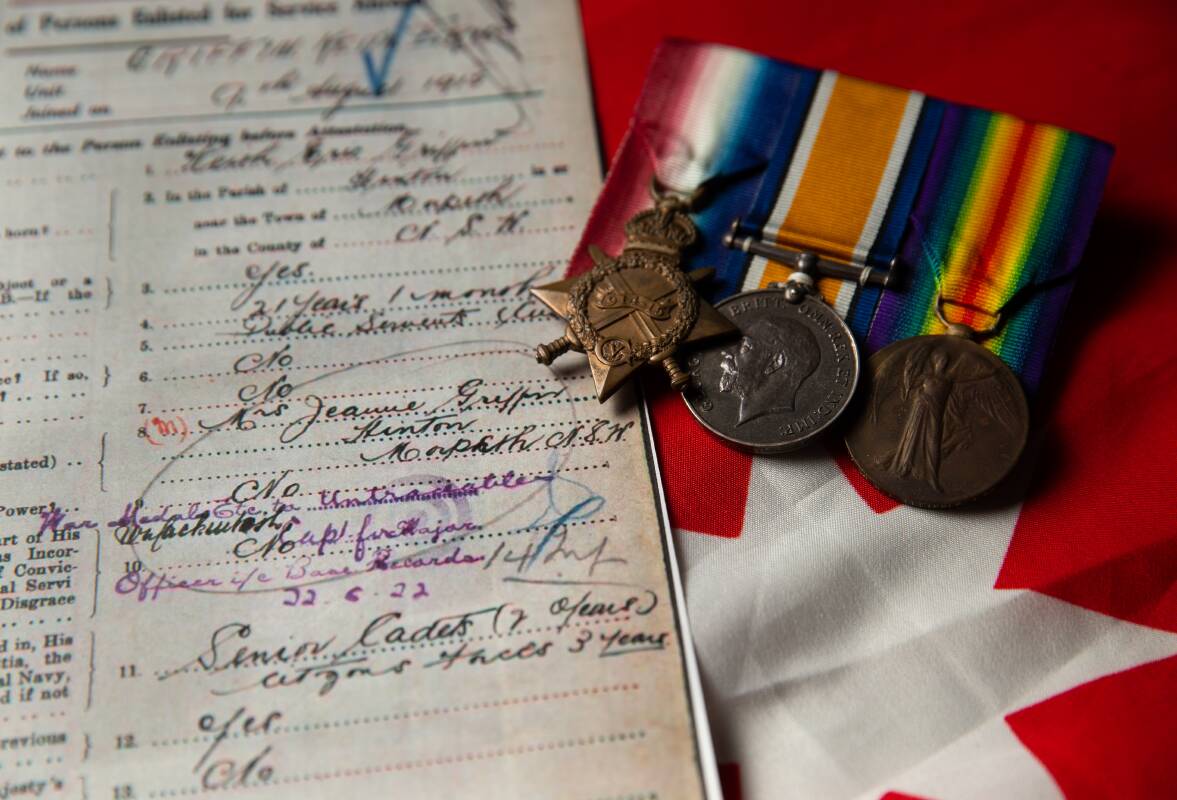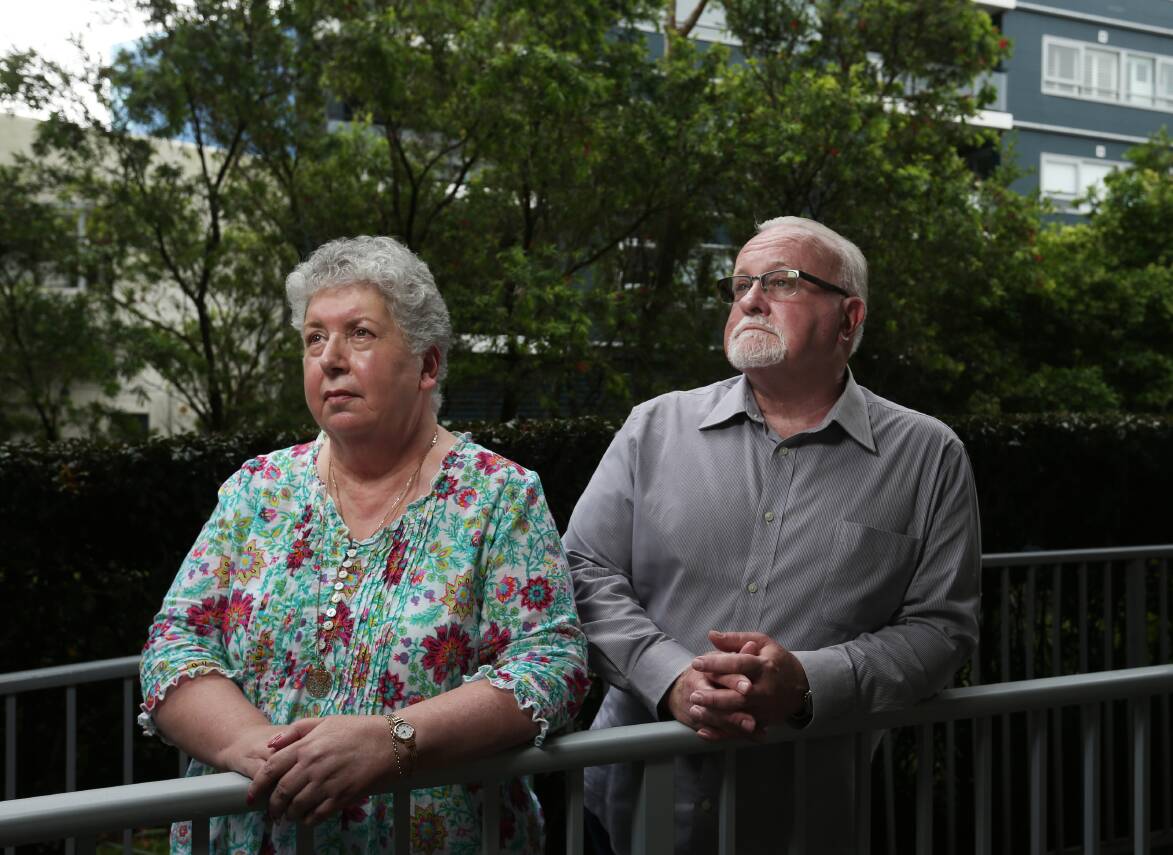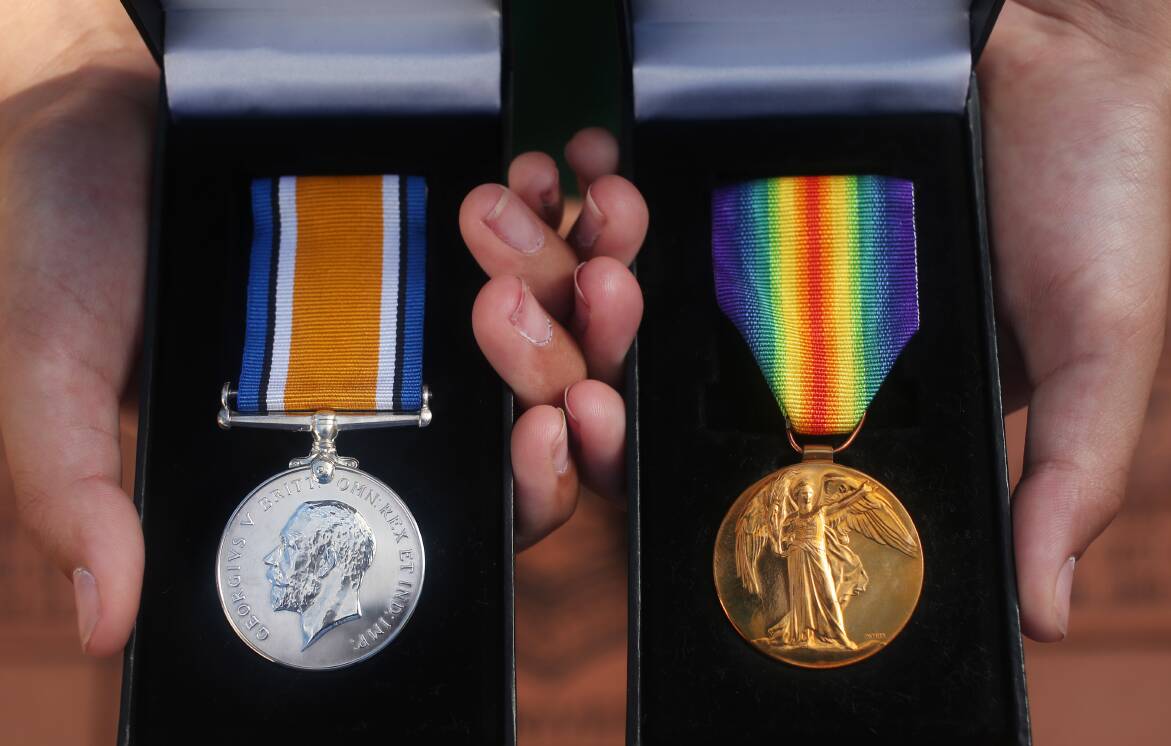


HUNTER historians Yvonne Fletcher and John Gillam have called for an independent investigation into the fate of thousands of unissued World War I service medals, after the Minister for Veterans' Affairs' office advised the artefacts were "likely destroyed through normal administrative processes".
Ms Fletcher said this explanation was "ill informed and doesn't make sense".
"The word likely? We deal with evidence," Ms Fletcher said.
"If they've destroyed them, where is the destruction order?
"Under the National Archives Act there should be a destruction order. Who destroyed them, when were they destroyed?
"It's like 'likely' being pregnant - you're either pregnant or you're not.
"It doesn't pass the pub test. Why would anybody, when they spend gazillions on the Australian War Memorial, destroy medals engraved with people's names?"
RELATED
- Hunter historians search for families of Hinton World War I heroes, Lance Corporal Keith Eric Griffin and Corporal Andrew Kennedy
- Remembrance Day 2021: World War I veterans' service medals find their way home 100 years later
- Fern Bay students to receive fallen soldier's World War I medals
- Hunter soldier Lance Corporal Keith Eric Griffin's WWI medals given to Hinton Public School, which he attended 100 years ago
- Hunter-born World War I Aboriginal soldier Private William King's unclaimed medals issued to Thornton Public School
The Newcastle Herald has previously reported on the pair's work compiling a list that has grown to 2401 World War I soldiers whose service medals were not issued for various reasons, including that they or their families chose not to apply for them; they died and their families were 'untraceable', or did not reply to correspondence; they were court martialed, discharged and forfeited their medals; had died in institutions; or were underage when they enlisted.
They believe up to 30,000 WWI soldiers may not have been issued their individually engraved medals.
Since 2016 the pair has helped soldiers' relatives and eligible institutions, including schools, apply for WWI medals.
The Directorate of Honours and Awards (DHA) engraves blank medals with a soldier's name after a successful application, although Ms Fletcher and Mr Gillam said the engraving on these first issue medals was not as of high quality as on the originals.
They have been trying to ascertain for several years the location of the unissued original WWI medals.
These medals - the British War Medal, Victory Medal and for some the 1914 Star or 1914-15 Star- were engraved at the Royal Mint at the time with the name and service details of every soldier.
They were then stored to be distributed upon application.
They were shocked at the July 22 response to their June 19 email to Minister for Veterans' Affairs Matt Keogh's office about the medals.
"I am advised that defence has conducted extensive physical searches and reviews of departmental records and found no evidence of a large stockpile of original medals relating to historical conflicts still existing or any documents in relation to their destruction," the reply said.
"While likely destroyed through normal administrative processes, with the passage of time, we may never know with certainty what became of these original medals."
The Herald sent a series of questions to Minister Keogh's office and the Department of Defence and asked if either would investigate where the medals were located.
A department spokeswoman replied on behalf of both, confirming "a thorough review of defence records and repositories has been undertaken and a store of engraved medals relating to historic conflicts was not located, nor evidence of their destruction".
"With the passage of time, we may never know with certainty what became of these original medals," she said, echoing the Minister's office.
"Present day medals issued by defence are drawn from securely held supplies of unengraved stock.
"When new supplies are needed defence sources them from authorised manufacturers in Australia and the United Kingdom. All medals are manufactured to the same design specifications and standard as those manufactured historically."
Ms Fletcher and Mr Gillam said without evidence such as a destruction order they believed the medals had been misplaced, not destroyed.
"We have a secure archive governed by a whole lot of legislation and all of a sudden they turn around and say 'Let's just get rid of them, we need the space?'" Ms Fletcher asked.
"These medals are the property of people, so the government can't give away your superannuation, they put it away and they list it on a website to say 'We've got this missing superannuation' or they send you a letter... so I don't think they'd get rid of them."
Mr Gillam agreed, saying it didn't make sense that there would be such a stringent process to apply for medals if the government held them in such low regard that it would destroy them.
"This is the military estate of that soldier," he said.
"That military estate belongs to the family, it's equivalent to the Commonwealth Government destroying your family's history, your family's property."
Ms Fletcher said the medals could have been archived as medals, awards, decorations, or records.
"But someone has got to look," Mr Gillam said.
"That's what they're not doing. Nobody wants to look and it's because they're fearful of what they will find. If they find this, they're going to have to catalogue them, they're going to have to go through and get the names off every single one of those medals... they're part of the record of that person's military service and the heritage of that family.
"As soon as you put it online the families of Australia are going to say 'Our name is Smith, I wonder if this guy was one of ours?'
"They're going to get a flood [of applications]... they've been put in [storage] and forgotten and now there's no political will to recover them."
The pair said finding the original medals would also lead to questions about whether to recall the blank medals that have been engraved and issued to applicants in recent years.
They said before DHA, the issuing of medals was managed by Army Base Records, the Central Army Records Office and then the Department of Veterans' Affairs.
A 1986 story in the department's Vetaffairs magazine said there were 800,000 unclaimed medals from WWI to Vietnam in the army's central records office in Melbourne.
It said most were for service in WWII, but "about ten per cent of the medals also remain unclaimed from World War I".
Former Directorate of Naval Personnel Services staff officer for medals Keith Freemantle told the Herald there were still around 1000 unissued medals from WWI to Vietnam when he left the role in late 1998.
"They were actually sent out to the individual and we had them in their original package that were returned [in] unclaimed - they were still in their original package with the old original stamps and everything on them," he said.
Mr Freemantle said his team's role was to evaluate the eligibility of applications for medals.
They issued around 200 after sending a list of names on the medals to newspapers in Sydney and Melbourne in 1997.
He said "very few" applications were made for WWI medals.
He said the unissued medals were stored in alphabetical order in a compactus in his office, in D Block, Russell Offices, Canberra.
"We never opened them, [unless] someone claimed them, to check they were there and everything was okay - they still had the original letter with them," he said.
"Thousands" of unmarked medals - to be engraved to replace ones that had been lost or stolen - were in a locked vault in the building.
Mr Freemantle said the medals were still in these locations when he left.
"I can't offer a clue, I don't think [the government] know themselves," he said of where the medals were located.
"I think it's a bloody disgrace [they can't be found]... it's pretty sad."
He said D block was demolished in around 2000. He said the army medal office was in Melbourne and the airforce medal office was also in Russell Offices.
A Canberra Times story from 1995 refers to more than 200,000 Australian Army World War II medals sitting unclaimed in a warehouse in Bandiana, while a RAAF News story from the same year refers to Corporal Keith Coles' missing medals being located "in Discharged Personnel Records at Queanbeyan".
"There's nothing in Hansard about putting them into storage, nothing in Trove, so it wasn't publicly debated and it wasn't politically debated," Mr Gillam said.
The pair said finding the medals - and any associated paperwork likely to be in the same location - was necessary to accurately determine whether medals had been issued; make a valid judgement on current applications for medals; plus streamline what had been a "problematic" process.
Ms Fletcher and Mr Gillam have recently helped with 10 applications for untraceable WWI soldiers' medals.
Of these, four were processed but six needed intervention to have initial rejections overturned or to be addressed.
They said DHA had rejected applications saying medals had already been issued, without providing evidence to who and on what date.
"They're not making valid decisions based on evidence - the medal is the evidence," Ms Fletcher said.
"If you apply for a medal and there is no evidence of medal issue they must err on the side of the applicant, because they've got no evidence to refute it."
They said the NSW military district had not comprehensively recorded receipt of medals on WWI soldiers' personal dossiers or service records, which were digitised in the mid 1990s and are held by the National Archives of Australia.
They said the DHA referred to these dossiers when determining whether medals had been issued, as well as defence records.
Ms Fletcher and Mr Gillam said there was no evidence of any other kind of records relating to WWI medals being issued, received, or accounted for, leading them to believe the relevant paperwork was with the missing medals.
They said there were registers in the National Archives of every Returned From Active Service Badge, which were distributed with discharge papers and covered by an army order.
"They aren't covered by legislation and yet they're catalogued to the nth degree, but medals that are covered by legislation have nothing?" Ms Fletcher said.
"That's the hole in the archive."
The pair said Australians deserved better.
"Many of them fought at Gallipoli," Ms Fletcher said.
"That's worthy of their family having a medal, so it's pretty disrespectful to their memory. We talk about commemorating them and venerating them for their service [but we won't give them the original medal?]"
Mr Gillam said some may say that the wishes of soldiers who didn't want to apply for their medals should be honoured.
"That was their decision and they made it for reasons only known to themselves," he said.
"But now comes the point in time for the family and generations after them, how do you want to remember this person's service and sacrifice?
"By having their original medals you have got the opportunity to march on their behalf now and tell their story about why they didn't pick those medals up."
Mr Gillam likened their campaign to that of retired Australian teacher Lambis Englezos, who found a discrepancy between the numbers of unidentified soldiers buried in Fromelles and the lists of the missing.
Mr Englezos' theory that the Germans had buried soldiers in unmarked mass graves led to an official investigation. A total of 250 bodies were recovered, many were identified and all were reburied.
"That's where they're scared of, guaranteed, they don't want this thing to mushroom, yet here we are on Australian soil, we don't have to exhume anybody, we simply have to find them, make them available to people, which is their right," he said.
"It was their right 100 years ago and it still is today. Yet these people are standing in the road of that by simple recalcitrance."







